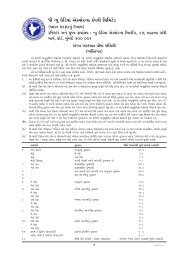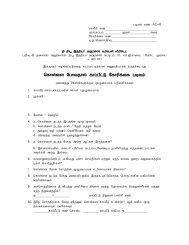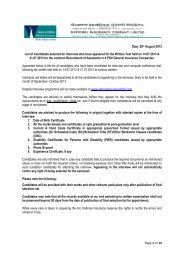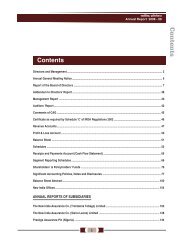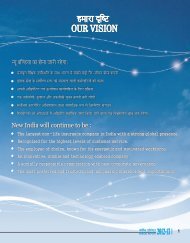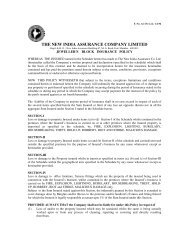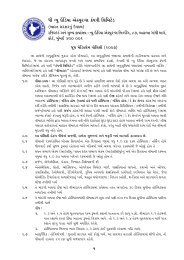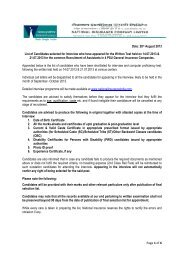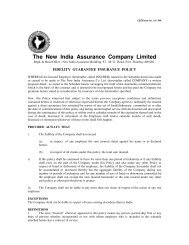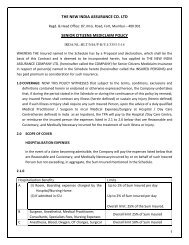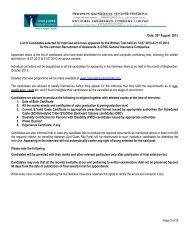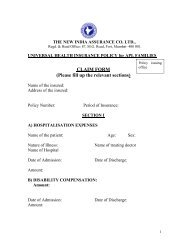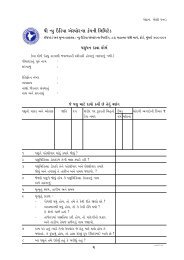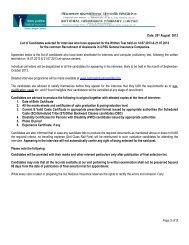Property_Manu - Final - The New India Assurance Co. Ltd.
Property_Manu - Final - The New India Assurance Co. Ltd.
Property_Manu - Final - The New India Assurance Co. Ltd.
You also want an ePaper? Increase the reach of your titles
YUMPU automatically turns print PDFs into web optimized ePapers that Google loves.
<strong>The</strong> <strong>New</strong> <strong>India</strong> <strong>Assurance</strong> <strong>Co</strong>.<strong>Ltd</strong>.16. <strong>The</strong> term ‘prior period items’ as defined in this Statement, refers only to income or expenseswhich arise in the current period as a result of errors and omissions in the preparation of thefinancial statements of one or more prior periods. <strong>The</strong> term does not include other adjustmentsnecessitated by circumstances, which though related to prior periods, are determined inthe current period, e.g., arrears payable to workers as a result of revision of wages withretrospective effect during the current period.17. Errors in the preparation of the financial statements of one or more prior periods may bediscovered in the current period. Errors may occur as a result of mathematical mistakes,mistakes in applying accounting policies, misinterpretation of facts, or oversight.18. Prior period items are generally infrequent in nature and can be distinguished from changesin accounting estimates. Accounting estimates by their nature are approximations that mayneed revision as additional information becomes known. For example, income or expenserecognized on the outcome of a contingency which previously could not be estimated reliablydoes not constitute a prior period item.19. Prior period items are normally included in the determination of net profit or loss for thecurrent period. An alternative approach is to show such items in the statement of profit andloss after determination of current net profit or loss. In either case, the objective is to indicatethe effect of such items on the current profit or loss.CHANGES IN ACCOUNTING ESTIMATES20. As a result of the uncertainties inherent in business activities, many financial statementitems can not be measured with precision but can only be estimated. <strong>The</strong> estimation processinvolves judgments based on the latest information available. Estimates may be required,for example, of bad debts, inventory obsolescence or the useful lives of depreciable assets.<strong>The</strong> use of reasonable estimates is an essential part of the preparation of financialstatements and does not undermine their reliability.21. An estimate may have to be revised if changes occur regarding the circumstances on whichthe estimate was based, or as a result of new information, more experience or subsequentdevelopments. <strong>The</strong> revision of the estimate, by its nature, does not bring the adjustmentwithin the definitions of an extraordinary item or a prior period item.22. Sometimes, it is difficult to distinguish between a change in an accounting policy and achange in an accounting estimate. In such cases, the change is treated as a change in anaccounting estimate, with appropriate disclosure.23. <strong>The</strong> effect of a change in an accounting estimate should be included in the determination ofnet profit or loss in:(a)(b)the period of the change, if the change affects the period only; orthe period of the change and future periods, if the change affects both.76 MANUAL ON PROPERTY



